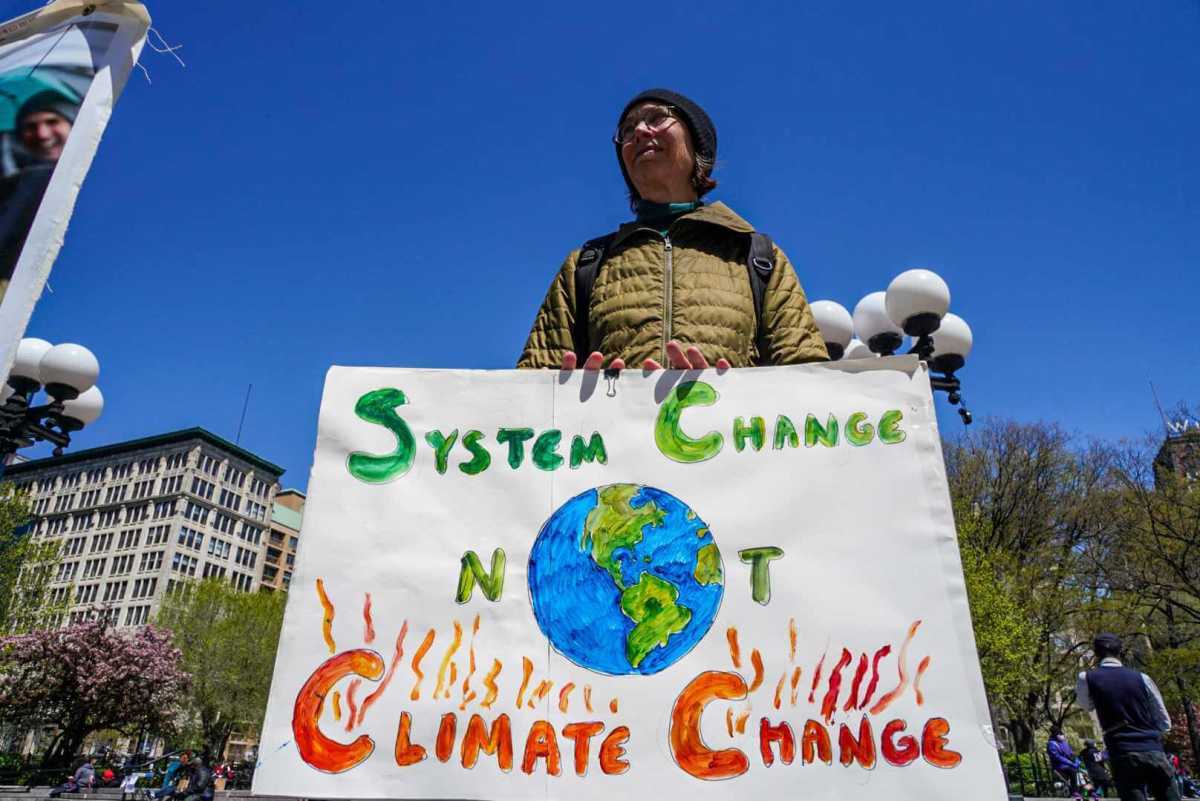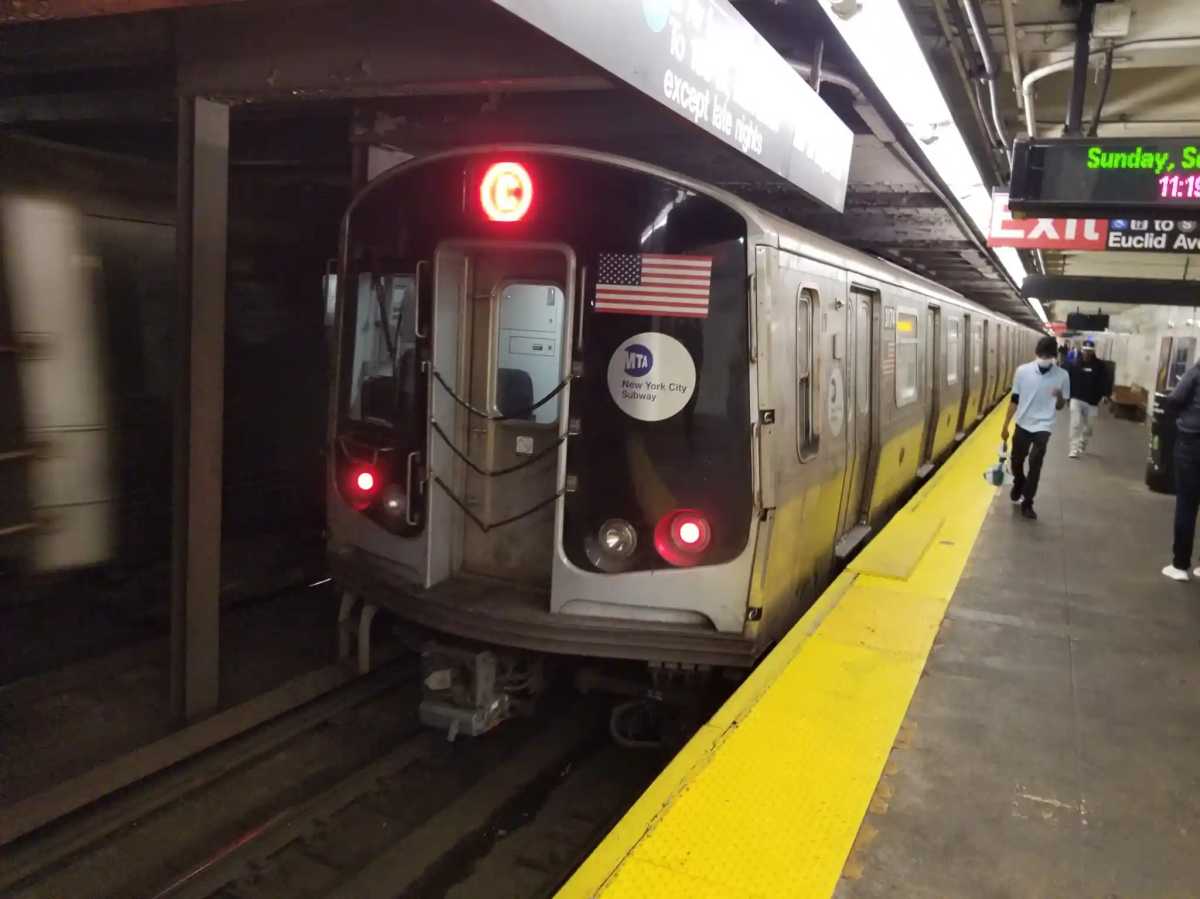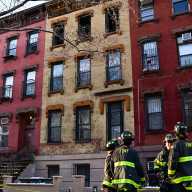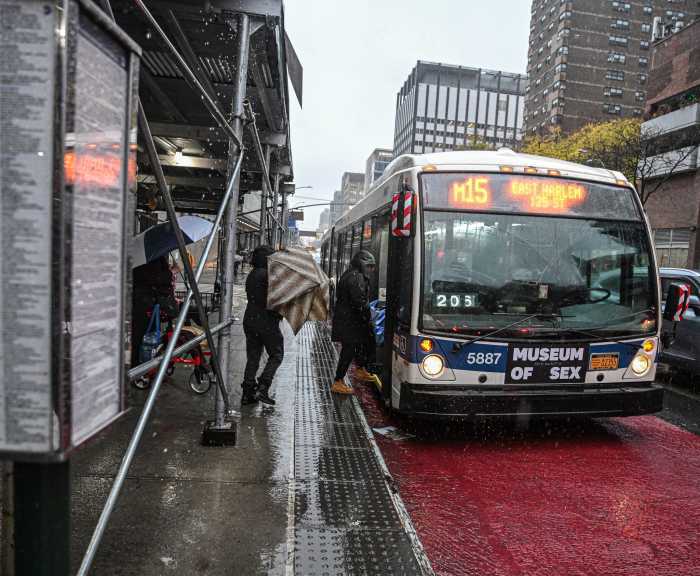After a winter of record-high utility bills in New York City and a disappointing budget cycle for those most passionate about climate, environmental activists gathered in Union Square on Wednesday afternoon to call for action from the governor’s office.
“People are getting clobbered right now with very high Con Ed bills, really high National Grid bills,” said Lee Ziesche, an organizer with the Sane Energy Project. “So, we’re here today to kind of strike back against the utilities.”
Together with Climate Clock, who operate the enormous clock counting down to the day when catastrophic climate change is irreversible, advocates from the No North Brooklyn Pipeline Coalition asked Gov. Kathy Hochul for three things: to deny air pollution permits for a new natural gas project at National Grid’s Greenpoint depot; to stop the gas flowing through the North Brooklyn Pipeline and reverse the rate hike the utility was granted last year; and to get two green-energy bills passed through the state legislature this year.
“You know, our governor just passed a budget and is trying to act like she’s a big climate hero, but the fact is like, she hasn’t really been standing up to the corporate utilities,” Ziesche said.
Hochul’s office did not immediately reply to request for comment on Wednesday afternoon.
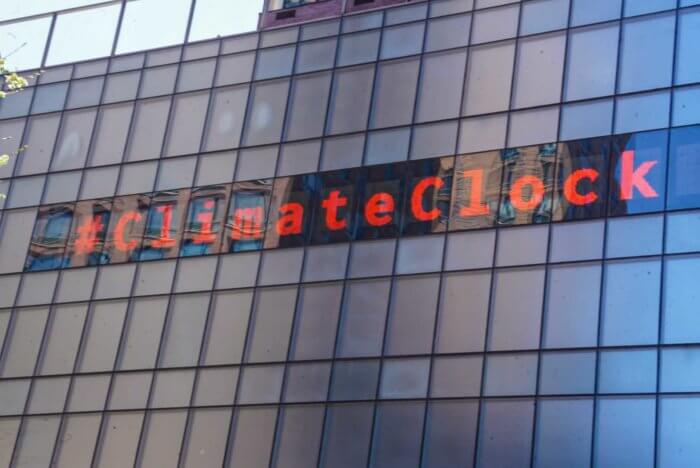
Last summer, the state’s Public Service Commission approved a two-year rate hike for National Grid, increasing charges for 1.2 million customers in Brooklyn, Queens, and Staten Island by about $66 per year. The British utility giant requested the hike in part to pay for the North Brooklyn Pipeline — formally known as the Metropolitan Natural Gas Reliability Project.
When the regulatory body approved the hike, it was with the caveat that National Grid could not use the money to complete the final phase of the hotly-contested pipeline, which runs through Brooklyn from Brownsville to Greenpoint.
Sane Energy wants utility bills lowered and for the existing portions of the pipeline to be shut down. The group launched a bill strike last summer in protest of the rate hike, and now say that about 500 National Grid customers are withholding their monthly payments.
Con Edison also filed a rate hike with the PSC in January, looking to collect $1.2 billion in revenue to support a host of new projects, including new renewable energy infrastructure. If their proposal is approved, customers could expect to see their electricity bills increase by 11.2 percent and their gas expenses grow by more than 18 percent, according to the filing.
“Utility bills are becoming the new rent,” Ziesche said. “I mean, so people literally can’t financially afford this. Their health physically can’t afford it and our climate just can’t take any more fracked gas.”
At the end of the pipeline’s unfinished route is National Grid’s Greenpoint Energy Center, a more than 100-acre facility. For nearly 20 years, the company has been waiting for the state’s Department of Environmental Conservation to decide whether or not to grant a less-restrictive air pollution permit, which would allow them to build two new Liquified Natural Gas vaporizers.
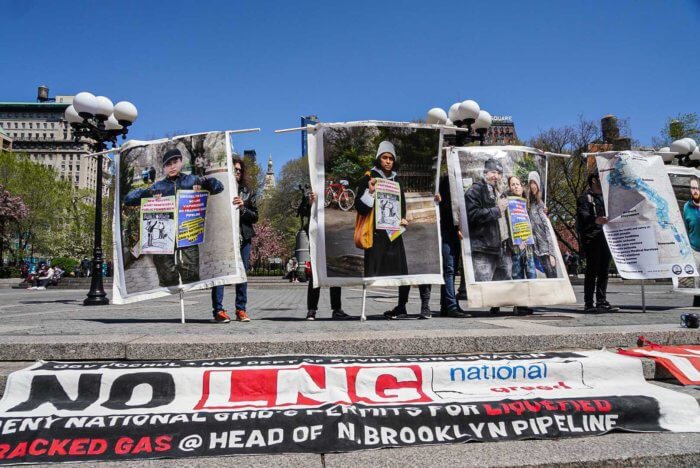
The vaporizers, used only on the coldest days of winter, turn stored liquid gas back into a vapor so it can be sent back into the system. National Grid says the new vaporizers would replace a pair of older, less-efficient vaporizers, which would eventually be phased out.
Elected officials, neighbors, and advocates say the new vaporizers are unnecessary, will violate the state’s ambitious climate goals, and further endanger the already-vulnerable communities around the energy center, including the nearby public housing development Cooper Park Houses.
The DEC has repeatedly delayed their decision on the permits, most recently requesting a three-month extension days before they were set to issue their ruling in February. Activists took to the street outside the agency’s Long Island City headquarters last week to demand a decision on their next upcoming goal in early May.
This week, National Grid announced a new “Clean Energy Vision,” a plan that would eliminate fossil fuels from their infrastructure by 2050 and replace it with renewable natural gas and green hydrogen.
“National Grid cares about providing safe, reliable, affordable, clean energy for all our customers,” said a company spokesperson. “The rising cost of energy, goods and services have been felt across the country and we’re doing all we can to minimize the impact and connect our customers to available services to help them meet their needs. We support the State’s clean energy goals and believe that the vision we announced yesterday of increased energy efficiency, electrification and replacing fossil fuels with renewable natural gas and green hydrogen will allow customer choice and affordability while we transition to a clean energy future for all.”
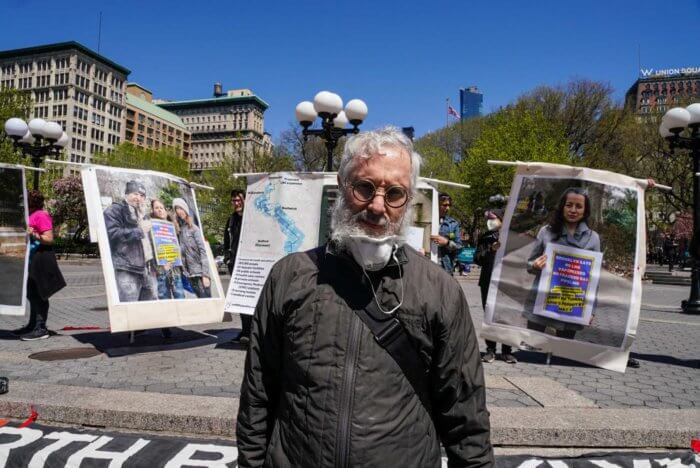
Finally, the protesters urged Hochul to pass the All-Electric Buildings Act and the Build Public Renewables Act this year.
Introduced in the state legislature last year, the All-Electric Buildings Act follows the lead of New York City, banning new gas hookups in new construction statewide by the end of 2023, while the Build Public Renewables Act would mandate that the public New York Power Authority provide only renewable energy.
Activists and elected officials fought to include the bills in this year’s state budget, but neither were included in the final draft, meaning they’ll have to work their way through the state senate and Assembly before the legislative session ends this summer — a delay many say the state can’t afford.
Photographer Ken Schles brought portraits of everyday New Yorkers and community leaders to promote climate change and showcase the global effect of environmental issues. Schles has been working to bring awareness to environmental issues for about seven years.
“Elie Wiesel said: ‘If you see an injustice, you can’t take the middle road, you have to fight.’ I can’t see injustice. So, I tried to use my work that way,” Schles said, “You know, National Grid is raising everyone’s rates right now to build infrastructure for infrastructure that we don’t need. And needs to be phased out. So everyone really needs to become aware of what they’re paying for and what the line items on their bills are for.”
Update April 21, 2022, 11:50am: This story has been updated to include comment from National Grid.


